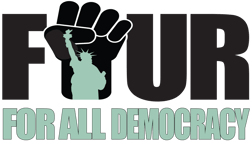Executive Overstep: Freezing Appointed Funds
What Happens When the Executive Branch Freezes or Blocks Funds Appointed by Congress?
2/19/20251 min read
In the United States, Congress holds the power of the purse, meaning it is responsible for allocating government funds through legislation. However, the executive branch, led by the President, has some authority over how these funds are distributed and spent (but not much). When the executive branch freezes or blocks funds that have been allocated by Congress, it can lead to significant legal, political, and economic consequences.
How Can the Executive Branch Block Funds?
The President or executive agencies may attempt to block or delay funds through:
Impoundment – The refusal to spend money that Congress has appropriated. This practice was largely restricted by the Impoundment Control Act of 1974, which requires the President to seek congressional approval before withholding funds.
Withholding or Reallocating Funds – The executive may attempt to divert funds to projects not authorized by Congress, often leading to legal challenges.
Delaying Disbursement – Agencies under the executive branch may slow down the release of funds, effectively stalling programs that Congress has approved.
Implications of Blocking Funds
Legal Consequences – Blocking funds without congressional approval can be deemed unconstitutional. Courts may intervene to enforce spending as dictated by Congress.
Political Fallout – Such actions can lead to conflicts between the President and Congress, potentially resulting in lawsuits, impeachment inquiries, or loss of public trust.
Disruption of Government Programs – Essential services such as disaster relief, military funding, or public health initiatives may suffer delays or cancellations.
Economic Impact – If funds are blocked from key projects like infrastructure or social programs, the economy could experience setbacks, affecting jobs and local economies.
What Happens if the Executive Tries to Override Congress?
If the President attempts to override Congress’s budgetary authority, Congress has several options:
Legislative Action – Congress can pass new legislation reinforcing its spending directives.
Legal Challenges – Courts can rule against the executive’s actions, as seen in past cases where presidents attempted to reallocate funds without approval.
Congressional Oversight & Investigations – Committees can hold hearings, demand documentation, and apply political pressure to enforce compliance.
Impeachment Proceedings – If the executive’s actions are deemed an abuse of power, impeachment could be considered.
The U.S. government is designed with checks and balances to ensure that no single branch oversteps its authority. While the executive branch has some discretion in managing funds, it cannot override Congress’s power of the purse without facing legal and political repercussions. When one branch overreaches, the others must act to preserve the integrity of democracy.
Empowering collective action to reclaim democracy.
info@fourforalldemocracy.com
© 2025. All rights reserved.
Four For All Democracy
SUBSCRIBE TO OUR NEWSLETTER
